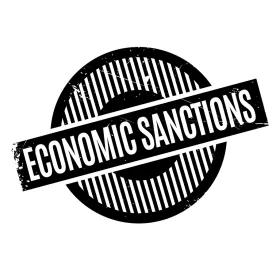Russia’s invasion of Ukraine and subsequent revelations of alleged atrocities in territories previously controlled by Russia have had a global impact. Dozens of foreign countries (States) have imposed a wide variety of sanctions affecting the Russian economy and, in response, Russia has also imposed its own economic measures on foreign investors.
As a result of such measures, foreign investors with investments in Russia may seem caught between the proverbial “rock and a hard place,” prompting them to simultaneously (1) divest from the Russian market as a result of international sanctions; and (2) retain or continue their foreign investments in Russia in the face of Russia’s responsive economic measures on foreign investment. As foreign investors consider their available options, many may find that investment treaty arbitration is the most promising or only available course of action to seek compensation for investments lost or devalued as a result of Russian economic measures.
Such investors should take immediate action to document all aspects of their Russian investments, including retaining safe copies (outside of Russia) of all available government-issued communications or approvals in relation to their investments as well as any evidence of the impact of Russia’s economic measures on the value of their investments. Acting prudently and proactively to safeguard all relevant information while conducting a preliminary review of the applicable investment treaty framework, which provides investment protection for certain foreign investments in Russia, may preserve future options to seek compensation.
In this two-part series, K&L Gates:
-
Surveys the current climate of international sanctions imposed by the United States, the European Union, and the United Kingdom (Part I), and
-
Explores the economic measures imposed by Russia on foreign investors as well as the potential for affected investors to seek compensation against Russia as a Respondent State in investment treaty arbitration (Part II).
We begin with a snapshot of the current climate of international sanctions touching foreign investors with investments in Russia.
THE CURRENT CLIMATE OF INTERNATIONAL SANCTIONS
International sanctions have been imposed by a broad range of States in various forms and have given rise to a number of important implications for foreign investment in Russia. For the present discussion, however, we consider in particular the effects of sanctions imposed by the United States, the European Union, and the United Kingdom.
The Effect of U.S. Sanctions on Foreign Investment in Russia
The United States adopted a host of economic sanctions in 2022 in response to the Russian invasion of Ukraine that built upon sanctions and export controls implemented in 2014 in response to Russia’s annexation of Crimea. The 2022 sanctions are directed mostly at U.S. persons—i.e., U.S. citizens and permanent residents (wherever located), individuals located in the United States (regardless of nationality), entities organized in the United States (including non-U.S. branch offices), and entities located in the United States (including U.S. branch offices and U.S. subsidiaries of non-U.S. companies). However, the sanctions and export controls imposed under the Biden administration have far-reaching consequences for foreign commercial transactions and investment. Among others, these impacts include:
-
U.S. Investment Ban. A recent ban on all new investment in Russia by U.S. persons, wherever located, applies to all Russian industry sectors, thereby greatly expanding prior bans on energy Investments. The U.S. Department of the Treasury, Office of Foreign Assets Control (OFAC), which administers most U.S. sanctions, has interpreted the term “investment” broadly to include any transaction that constitutes a commitment or contribution of funds or other assets or a loan or other extension of credit to an enterprise. This would include, among other things, loans, extensions of credit, assumptions or guarantees, overdrafts, currency swaps, purchases of debt securities, loan purchases, sales of financial assets subject to an agreement to repurchase, renewals or refinancings whereby funds or credits are transferred or extended to a borrower or recipient, issuance of standby letters of credit, and drawdowns on existing lines of credit. Because U.S. persons are also prohibited from facilitating any new investment in Russia, there is a direct impact on non-U.S. firms with dealings in Russia that require the involvement of U.S. personnel, directors, banks, insurers, suppliers, information technology, software, or numerous other means of U.S. support for transactions and activities.
-
Banking. Sanctions targeting Russian banks have interrupted a broad range of foreign commercial and investment transactions. Sanctions include the blocking of most major Russian banks, including Sberbank, Alfa-Bank, VEB, PSB, VTB, Otkritie, Sovcombank, Novikombank, and their subsidiaries; prohibitions on U.S. persons dealing with or involving the Central Bank, National Wealth Fund, and Ministry of Finance; prohibitions on U.S. financial institutions maintaining correspondent and payable-through accounts for Sberbank and its subsidiaries; and efforts to cut off certain Russian banks from the SWIFT messaging system, including Bank Otkritie, Novikombank, Promsvyazbank, Bank Rossiya, Sovcombank, VEB, and VTB BANK.
-
Export Controls. Strict export controls on luxury goods, items used in oil refining, and a broad range of military and dual-use goods, software, and technology have had a significant impact on supply chains for foreign manufacturers in numerous sectors. These restrictions apply not only to U.S.-origin goods but also to foreign produced items that contain sufficient U.S. content that is controlled for export and foreign produced items that are the direct product of certain U.S.-origin technologies and software. For example, many non-U.S. semiconductor manufacturers can no longer supply foreign manufacturers with facilities / equipment in Russia because their foreign chips rely on U.S. technology and software.
-
Blocking Sanctions. OFAC has designated hundreds of Russian officials, oligarchs, companies, banks, and other entities and individuals to the Specially Designated Nationals (SDN) and Blocked Persons List. SDNs and entities owned 50% or more by one or more SDNs are blocked in the United States, meaning their property and property interests are blocked (frozen) within U.S. territory or within the possession of U.S. persons. U.S. persons, including U.S. financial institutions, are strictly prohibited from dealing with blocked parties, which cuts off such parties from U.S. markets and U.S. dollar transactions, alienating them from many non-U.S. companies that refuse to transact with SDNs out of fear that they will be sanctioned themselves. Recent designations target the Nordstream 2 pipeline, financial institutions, the military, aviation, technology, other Russian industry sectors, and Belarusians, who supported the Russian invasion of Ukraine. Given the considerable assets held by Russian SDNs, the blocking of these parties has had a direct impact on a broad range of foreign investments.
-
Aerospace, Electronics, and Marine Sectors. Blocking sanctions targeting any party operating in Russia’s aerospace, electronics, and marine sectors are a major deterrent for non-U.S. companies that export goods (directly or indirectly) for use in these sectors. These sanctions, however, are not limited to exports. They expose both U.S. and non-U.S. companies to the risk of being designated on the SDN list if they engage in any commercial dealings or make any investments in these sectors.
-
Import Restrictions. Import restrictions on Russian-origin products like crude oil, energy products, seafood, alcohol, and diamonds have impacted thousands of existing supply contracts with non-U.S. companies. These restrictions have also triggered refiners, commodity traders, importers, and others to invest in alternatives to Russian supplies.
-
Debt Restrictions. Restrictions on U.S. persons dealing in Russian sovereign debt and the debt of certain State-owned enterprises has denied Russia access to key U.S. markets and investors. U.S. persons are prohibited from all dealings in the secondary market for ruble or non-ruble denominated bonds of Russia’s Central Bank, National Wealth Fund, or the Ministry of Finance of the Russian Federation. U.S. persons also are barred from dealings in the debt of the following State-owned enterprises: AlfaBank, Alrosa, Credit Bank of Moscow, Gazprombank, Gazprom, Gazprom Neft, Rostelecom, RusHydro, Russian Agricultural Bank, Russian Railways, Sberbank, Sovcomflot, and Transneft. Such sanctions may lead to defaults, which would negatively impact many foreign investors.
-
Aviation. Restrictions on Russian carriers and all Russian-owned, controlled, leased, or operated aircraft in U.S. territorial airspace, in conjunction with EU restrictions, have precipitated the grounding of hundreds of aircraft owned or leased by foreign companies. In fact, hundreds of Airbus and Boeing jets leased by Russian carriers are currently in default and being shielded from repossession while in Russian territory with obvious consequences for foreign lenders, owners, and suppliers.
The Effect of EU Sanctions on Foreign Investment in Russia
The European Union has also adopted sanctions in reaction to the Russian invasion of Ukraine, in addition to the restrictive measures already imposed since 2014, mainly in connection with the illegal annexation of Crimea.
The European Union measures against Russia are extremely broad in scope and concern many different economic sectors. They traditionally limited the access to EU primary and secondary capital markets for certain Russian banks and companies. In particular, it is prohibited to make certain loans and extend credit to listed entities, as well as to enter into transactions with certain financial instruments issues by those entities.
The new measures have enhanced those sanctions and have added a significant number of additional financial restrictions, including prohibitions on:
-
Financing the Russian Federation, its government, and Central Bank;
-
Accepting deposits exceeding €100 000 from Russian nationals or residents;
-
Providing crypto-asset wallet, account or custody services to Russian nationals or natural persons residing in Russia, or legal persons, entities or bodies established in Russia, if the total value of crypto-assets of the natural or legal person, entity or body per wallet, account or custody provider exceeds € 10 000;
-
Holding accounts of Russian clients;
-
Selling securities denominated in any official currency of a Member State to Russian clients and providing banknotes denominated in any official currency of a Member State to Russia;
-
Providing public financing or financial assistance for trade with, or investment in, Russia;
-
Listing and providing services on EU trading venues for the transferable securities of publicly-owned Russian entities;
-
Allowing listed Russian banks to use the SWIFT payments system;
-
Entering into transactions with the Central Bank of Russia;
-
Investing in, participating in, or otherwise contributing to projects co-financed by the Russian Direct Investment Fund;
-
Entering into transactions with certain State-owned enterprises across different sectors;
-
Providing credit rating services to any Russian person or entity;
-
Allowing participation of Russian companies in public procurement in the European Union;
-
Providing certain services (including management services) to a trust or any similar legal arrangement having as a trustor or a beneficiary Russian persons and entities, or to act as a trustee (or a similar position) for such trust or similar legal arrangement; and
-
Providing support, including financing and financial assistance or any other benefit, from a European Union or Member State programme to Russian publicly owned or controlled entities.
Other substantial restrictions are applicable in the following specific sectors:
-
Energy. It is prohibited to export certain equipment for oil exploration, production, and refining, as well as to provide related services and financing. Most importantly, it is now generally prohibited to invest (and provide related investment services) in the energy sector in Russia.
-
Trade. A broad list of goods cannot be sold to Russia, including not only arms, dual use goods, and goods and technology, which might contribute to Russia’s technological enhancement of its defence and security sector (such as semiconductors), but also listed luxury goods and goods which could contribute in particular to the enhancement of Russian industrial capacities (including related technical and financial assistance). The European Union also imposed an import ban on iron and steel products from Russia (including related technical and financial assistance), on goods which generate significant revenues for Russia (e.g., wood, cement, fertilisers, seafood and liquor) and on certain coal products and other solid fossil fuels if they originate in Russia or are exported from Russia.
-
Transport. The European Union imposed an export ban on listed goods and technology for use in aviation or the space industry (including aircraft and aircraft parts), as well as jet fuel and fuel additives, and further restrictions to the export of maritime navigation goods and technology. Restrictions also apply to the provision of related services and financing. In addition, Russian airlines are prohibited from landing in or overflying the EU territory. It is also prohibited to provide access to EU ports to vessels registered under the flag of Russia (with potential derogation for agricultural and food products, humanitarian aid, and certain fossil fuels). It is also prohibited for any road transport company established in Russia to transport goods by road within the territory of the European Union, including in transit (with exemptions for transport of mail and transport of goods between Kaliningrad and Russia, and potential derogations, covering for example natural gas and oil and pharmaceutical, medical, agricultural and food products).
-
Media. The European Union suspended the broadcasting activities in the European Union of Russian State-owned media outlets Sputnik and Russia Today.
-
Specific Regions. The European Union imposed restrictions and prohibitions on trade and investment in Crimea as well as in Donetsk and Luhansk.
The EU institutions are currently discussing further sanctions, which may include a ban on the purchase of oil from Russia and the exclusion of more banks from the SWIFT payments system.
Clearly, the strong and far-reaching restrictions imposed by the European Union are isolating the Russian economy and are severely affecting foreign investments in the country; in particular, EU companies are divesting, exiting joint ventures, and withdrawing from a growing number of projects, and more divestments are expected in the coming weeks. Banks and professionals (including lawyers) are leaving Russia as well.
The measures have a different impact on different sectors and EU countries, depending on respective exposure. In order to mitigate the impact of sanctions on the European economy, the European Union adopted a temporary crisis framework, which will enable EU Member States to (i) grant aid to companies affected by the crisis, as well as by the related countermeasures and Russian economic measures; (ii) ensure that sufficient liquidity remains available to businesses; and (iii) compensate companies for the additional costs of exceptionally expensive gas and electricity.
The Effect of UK Sanctions on Foreign Investment in Russia
The UK has also adopted sanctions in reaction to the Russian invasion of Ukraine, in addition to the restrictive measures already imposed since 2014 and during the period post the United Kingdom’s exit from the European Union. These have been introduced on an almost daily basis since the beginning of the humanitarian crisis in Ukraine.
The UK measures against Russia are similarly broad in scope and concern many different economic sectors. They have focussed on financial restrictions, including asset freezes, imposed on over 1000 individuals and entities.
The designated persons targeted include:
-
High profile and high net worth value individuals and the CEOs of Russian State-owned businesses, and the main shareholders in other well-known businesses;
-
Various Russian banks such as VTB Bank and Sberbank;
-
Russian businesses including those operating in the aircraft, defence, shipbuilding, and machine manufacturing sectors; and
-
Political figures and their family members.
The UK sanctions recently extended some of the investment and financial restrictions on Russian companies and introduced some new measures.1 These include:
A ban on all new outward investment to Russia. The detail of this prohibition has not yet been released.
-
Measures to prevent Russian banks from clearing payments in sterling;
-
Measures that prohibit transactions with the Central Bank of the Russian Federation, Russian Ministry of Finance and Russian National Wealth Fund;
-
Extending the prohibitions on securities and money-market instruments;
-
Extending the prohibitions on issuing loans and credit; and
-
Trade and aviation (including aviation insurance) sanctions measures.
Significant developments include the following:
-
Energy. The United Kingdom has also introduced extensive licensing requirements on export of goods/technology, technical services, financing, brokering and other services relating to specific oil and gas related equipment to persons in Russia, or for use in Russia. UK prohibitions also capture the import, export and provision of technical services, financing and brokering services relating to oil, gas and coal from or into Crimea.
-
Transport. The United Kingdom has banned its ports from allowing access to Russian owned or chartered ships (subject to exceptions for protecting safety and dealing with emergencies). Similarly, Russian aircraft are not permitted to enter UK airspace or land in the United Kingdom.
-
Designated persons. The Russia (Sanctions) (EU Exit) Regulations 2019 (Regulations) also include provisions that severely restrict the engagement of those subject to UK sanctions in relation to dealing with funds or economic resources owned, held, or controlled by a designated person.2 Similar restrictions are in place on those who are subject to UK sanctions in relation to making funds or economic resources (including goods) available directly or indirectly (including via a third party) to, or for the benefit of, a designated person.3
-
Ownership and control. The regulations include a broad definition of ownership or control, which include where it is reasonable, having regard to all the circumstances, to expect that the designated person would be able, directly or indirectly, to achieve that an entity’s affairs are conducted in accordance with the wishes of the designated person.4 This can make compliance by potential investors extremely difficult when it is not necessarily immediately clear as to the relevant levels of ownership or control.
-
Economic Crime Act 2022 (Act). The UK government expedited the introduction of this legislation as a direct response to the Russian invasion of Ukraine. The key change from a sanctions perspective is the removal of any requirement for the UK’s Office for Financial Sanctions Implementation (OFSI) to show, on the balance of probabilities, that the person committing the breach knew, or had reasonable cause to suspect, that their conduct was in breach of the financial sanctions.
The Act removes this knowledge requirement and replaces it with strict liability, whereby the intent or knowledge of the person committing the breach is not relevant to OFSI’s power to impose a civil penalty. The aim of this amendment is to put increased pressure on those to whom the regime applies to comply with its requirements.
-
Cooperation. The United Kingdom continues to work in close contact with the United States and the European Union in relation to the sanctions it is imposing in relation to Russia. It seems almost inevitable that the United Kingdom will continue to impose wider investment sanctions, potentially mirroring those imposed by the United States and European Union, as the three sanctioning regimes continue to seek to remain aligned.
The effect of UK sanctions will inevitably lead to potential investors being far more cautious due to the potential exposure to criminal prosecution, civil penalties and the reputational risk associated with such penalties. Potential investors must also consider the Russian response as detailed in Part II of this series, which will further increase the risk of investing in Russia and the difficulties in exiting any such investments.
NEXT STEPS IN THE CONVERSATION: WHAT THIS MEANS FOR YOUR INVESTMENT
In Part II of this series, K&L Gates briefly considers the economic measures imposed on foreign investment by Russia in response to international sanctions, exploring how investment treaty arbitration may provide affected foreign investors a unique opportunity to seek compensation for the loss or devaluation of their investments in Russia. In view of the unprecedented challenges facing foreign investors in Russia at this time of international sanctions and responsive Russian economic measures, many foreign investors would be well advised to consider the potential of investment treaty arbitration to provide relief from the loss or devaluation of foreign investment as a result of Russian economic measures. Accordingly, foreign investors should take appropriate steps for the preservation of information and for due diligence at an early stage, considering carefully the potential of investment treaty arbitration to provide a remedy.
Rosie Naylor and Hena Sial also contributed to this article.
Footnotes
1 The Russia (Sanctions) (EU Exit) Regulations 2019 (as amended).
2 Regulation 11, The Russia (Sanctions) (EU Exit) Regulations 2019.
3 Regulations 12, 13, 14 and 15, The Russia (Sanctions) (EU Exit) Regulations 2019.
4 Regulations 6 and 7(4), The Russia (Sanctions) (EU Exit) Regulations 2019.







 />i
/>i

